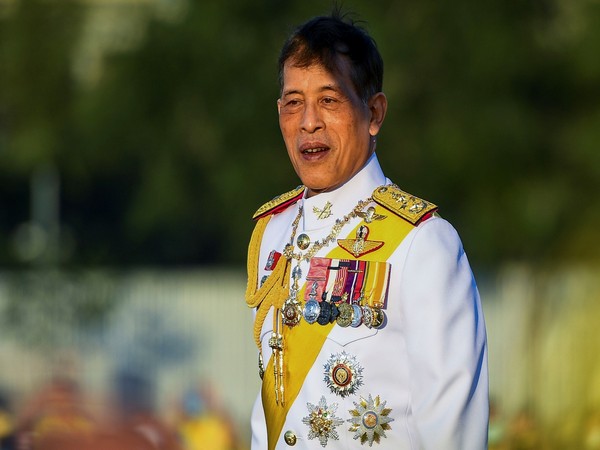

Thailand has banned an upcoming book on the country’s King Maha Vajiralongkorn on the grounds that it mocks the monarchy, a subject of escalating political tension in a country with one of the strictest royal defamation laws in the world, Voice of America (VOA) reported.
The book’s exiled Thai editor, who has been a prominent opponent of Thailand’s monarchy and conservative political establishment, has joined rights organisations in denouncing the action as a violation of the free speech and expression rights that the nation claims to preserve.
The government announced its ban on the order and import of the book, Rama X: The Thai Monarchy under King Vajiralongkorn, in the Royal Gazette, VOA reported.
Voice of America (VOA) is the US international broadcaster, providing news and information on digital, television, and radio platforms.
Signed by police chief Damrongsak Kittiprapas, the order states that “the cover and the articles represent the attitude of the author to defame, insult or threaten the King, the Queen, the Heir to the throne or the Regent; or to undermine national security, social stability or good morals”.
Citing the 2007 Printing Recordation Act, it says anyone breaking the law could face up to three years in jail and a maximum fine of about USD 1,730. Copies that do make it into the country may be seized and destroyed, VOA reported.
The order calls Pavin the book’s writer and author. Pavin, however, told VOA he was the editor of the book, an anthology of chapters from several authors, including himself.
He said he believed that the Thai authorities had not read the book, due out in hardcopy this fall, and that only he and the American publisher, Yale University’s Council on Southeast Asia Studies, have seen the full final draft. An e-book of the volume will follow a few months later, he added, VOA reported.
In 2014, following a military coup in Thailand, the regime that seized power ordered the overseas academic to report to authorities and issued an arrest warrant after he failed to show. The regime revoked his passport soon afterwards.
In 2020, the Thai government blocked social media access inside the country to a page run by Pavin hosting a critical debate about the Thai monarchy.
The cover of the forthcoming book includes images of the king, Thailand’s Democracy Monument, and the bottom half of a military-type tank.
Erik Harms, who chairs Yale’s Council on Southeast Asia Studies, said the publisher was standing by the book.
“Banning a book does not seem to me to be a very thoughtful way of engaging with academic perspectives one disagrees with,” Harms said, adding, “readers who end up reading it should be free to determine on their own whether the choice to ban it has any merit.”
Rights groups say banning the book tramples on the basic principles of free speech and expression, VOA reported.
Human Rights Watch, meanwhile, said Thailand has banned about a dozen books over the past 20 years, most of them for their alleged offence of the monarchy.
The group’s senior researcher in Thailand, Sunai Phasuk, called the bans part of a concerted effort by Thai authorities to not just shield the monarchy but stifle growing demands for democratic reform.
A critical debate on the monarchy has long been taboo in Thailand, protected by a constitution that holds the king beyond reproach and a royal defamation law that metes out up to 15 years in jail for insulting the king, queen, heir or regent, VOA reported.
A young generation of activists shattered that taboo during a wave of pro-democracy protests in 2020, adding reform of the country’s constitutional monarchy to their list of demands. They see a royal palace playing an outsized role in the country’s politics and want new rules to rein it in. Authorities have since charged over 250 people with breaking the law on royal defamation for pressing those demands.
Move Forward, a party proposing to restrict the royal defamation law’s use — and alleged misuse — won the most seats in elections to fill the House of Representatives in May. However, conservative lawmakers in the House and in the military-appointed Senate denied party leader Pita Limjaroenrat’s bid for the prime minister’s seat in a joint session last month.
Most of the lawmakers who spoke against Pita’s bid railed against his party’s proposal to amend the royal defamation law, VOA reported.
The latest book ban echoes the pro-military government’s use of the royal defamation law, said Khemthong Tonsakulrungruang, a legal scholar at Thailand’s Chulalongkorn University.
He said the military has long used to the monarchy’s legal status to condone a history of political meddling, including 13 coups in the past nine decades.
“The military always justifies their intervention in Thai politics as to protect the monarchy. This is where the [military’s] legitimacy is derived,” he told VOA, adding, “Although the ban is futile, it shows that the government is loyal and proactive in safeguarding the monarchy, hence the reason for their existence.”